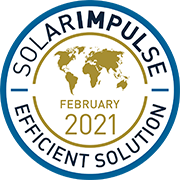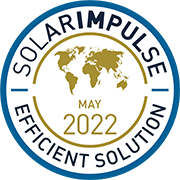News - July 2, 2025
Plastic Free July; Our Solutions to Combat Plastic Pollution
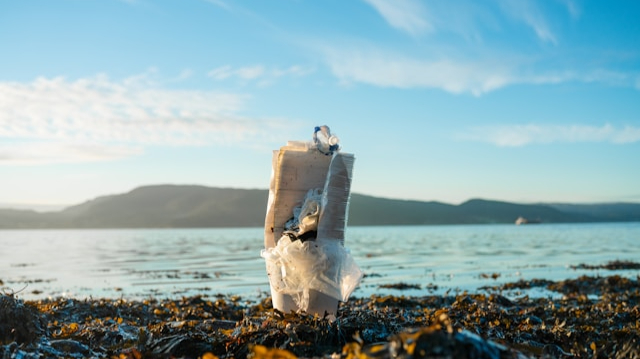
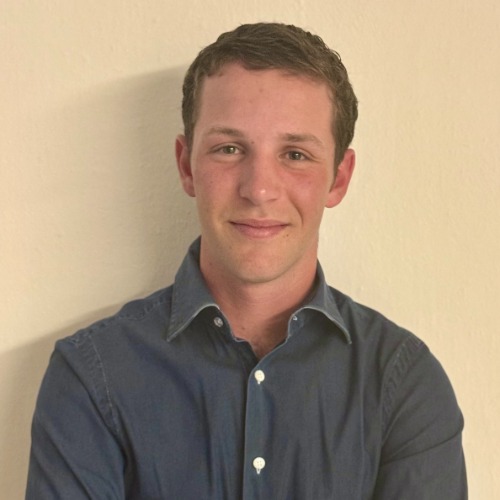
Written by Léon Pieyre 5 min read
Plastic Free July
Every day, roughly 1 million plastic bottles are sold per minute1. From this million, fewer than 30% end up being recycled. The rest accumulates to add up to the 400 million tonnes of plastic waste that are generated by mankind each year2.
After a visit to a local recycling centre in Perth, Australia, Rebecca Prince-Ruiz, the founder of the Plastic Free Foundation, realised the scale of the plastic waste problem and challenged herself to avoid single-use plastic for the month of July. In 2011, Plastic Free July officially began as a local awareness campaign and gained global popularity over the years. In 2017, the Plastic Free Foundation was officially established and is currently the leader of a movement followed by over 170 countries on Earth.
In honor of Plastic Free July, the Solar Impulse Foundation has identified various types of solutions to fight plastic pollution. We hope it might serve as an inspiration to all our readers!
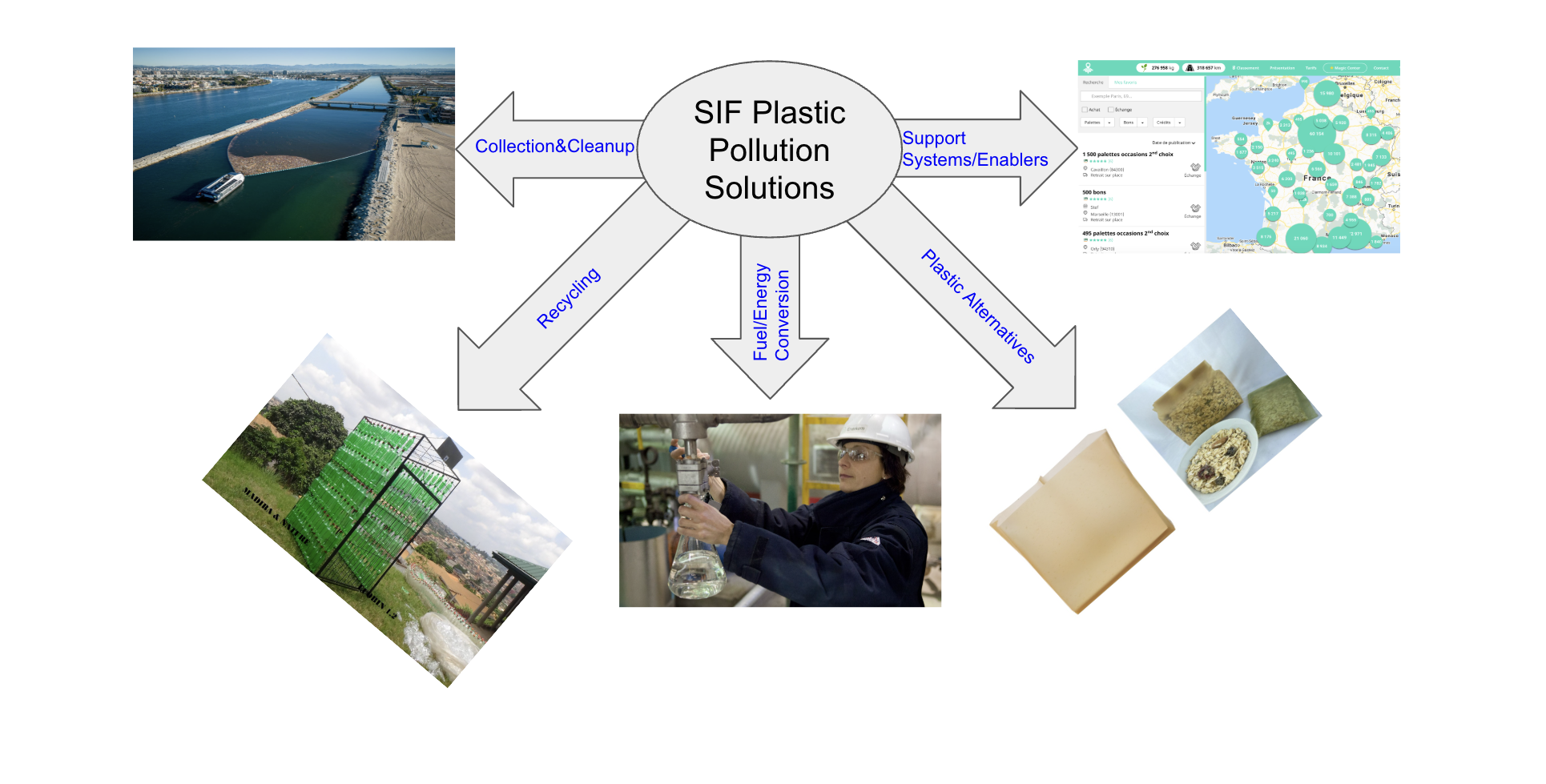
Collection & Cleanup
The solutions intercept plastic waste in rivers, urban waters or oceans, aiming to stop the spreading of microplastic in the environment.
The InterceptorTM by The Ocean Cleanup intercepts river plastic pollution and can extract 50,000 kilograms of plastic per day. 100% solar powered, this technology has already been implemented all over the world. Jakarta in Indonesia, Ballona Creen in the Los Angeles County or Rio Ozama in the Dominican Republic are some of various locations where this solution has already had a positive impact on plastic pollution. Since its launch in 2019, the InterceptorTM has captured 21 million kilograms of plastic globally.
SEAD’s Blue Barriers turns ocean plastic into wealth by capturing it in rivers and extracting the highest value from it. Using the water flow, it captures about 100% of the plastic litter in a collection basin on a side of the river. The solution was selected among the Economist’s Top10 OceanChangeMakers.
HiveX by Everware is a stationary platform system aiming to redirect plastic waste in rivers globally to avoid it from further polluting our oceans. Using a passive internal architecture and a river’s current, this design safely stores plastic waste and is currently active in Albania, Cambodia and Thailand
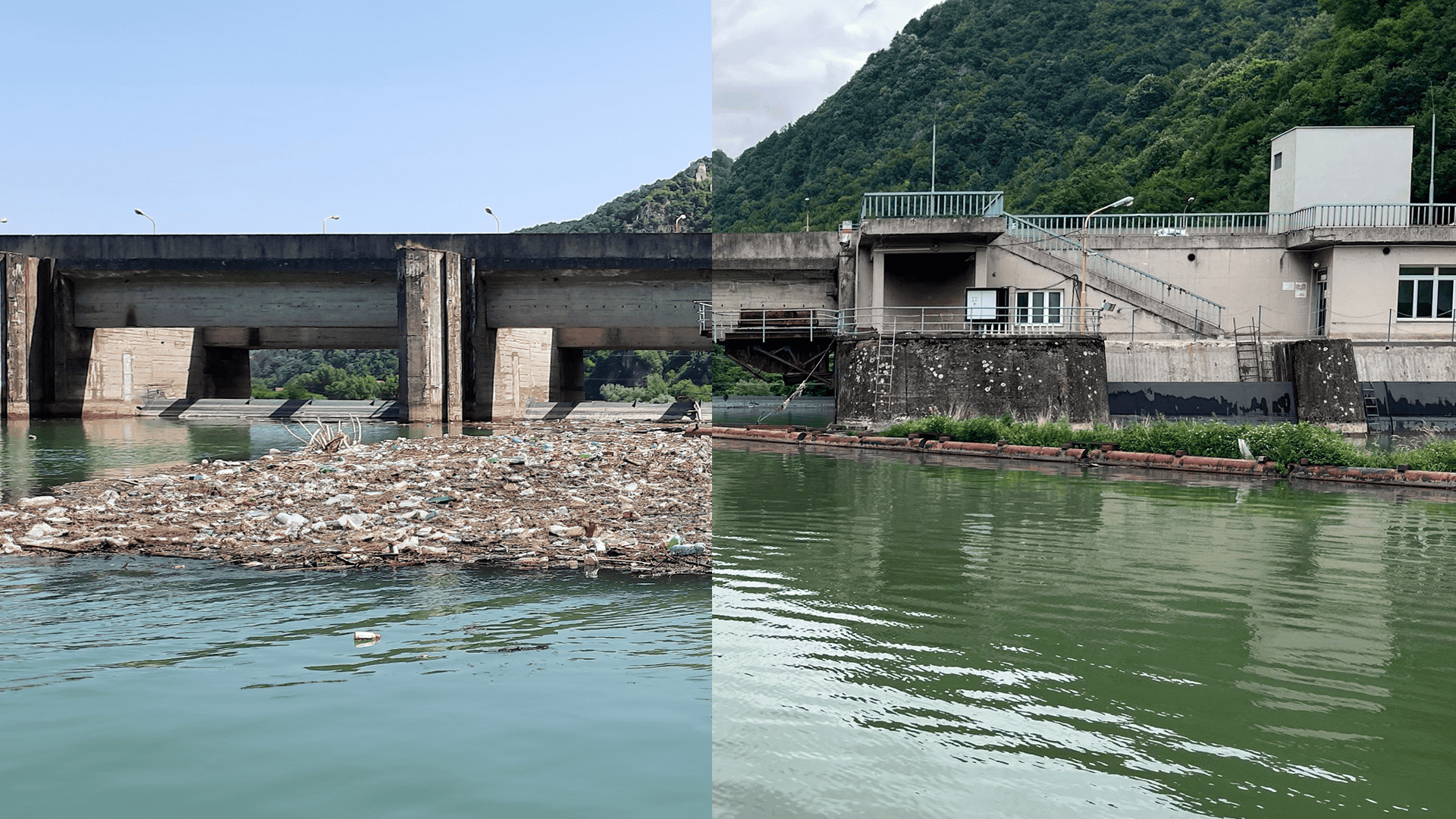 Before/After comparison of a region positively impacted by Hive X's cleanup technology
Before/After comparison of a region positively impacted by Hive X's cleanup technology
Mechanical & Chemical Recycling
Recycling Solutions aim to reduce the amount of waste caused by single-use plastic by transforming it into reusable or valuable materials:
The Ocean Bottle is a long-lasting bottle flask from ocean plastic. The Ocean Bottle project supports coastal communities on a large scale by engaging tens of thousands of people to become plastic collectors and providing them with an opportunity to earn a living wage while respecting the environment. Plastic collectors can exchange plastic waste for money or credit via blockchain technology to spend on tuition, tech goods, health care and micro-finance. Each Ocean Bottle funds the equivalent of 1000 ocean-bound plastic bottles in impoverished coastal communities where there is little or no waste management.
Carbios PET biorecycling provides an industrial solution to the recycling of PET plastics and textiles. The technology uses enzymes to deconstruct PET plastic waste and reuse its basic components as new PET plastics of a quality equal to virgin ones. L’Oréal incorporated this solution in 2025 to reduce its carbon footprint and support a circular economy. It was also adopted by Citeo in France and is expected to enable the recycling of 108,000 tons of plastic packaging by the end of this year.
Arqlite’s Smart Gravel turns unrecyclable plastic into highly efficient materials for the department of green landscaping. This solution was adopted by the Los Angeles Department of Water and Power and converted roughly 680kg of plastic waste into a sustainable cover for planters.
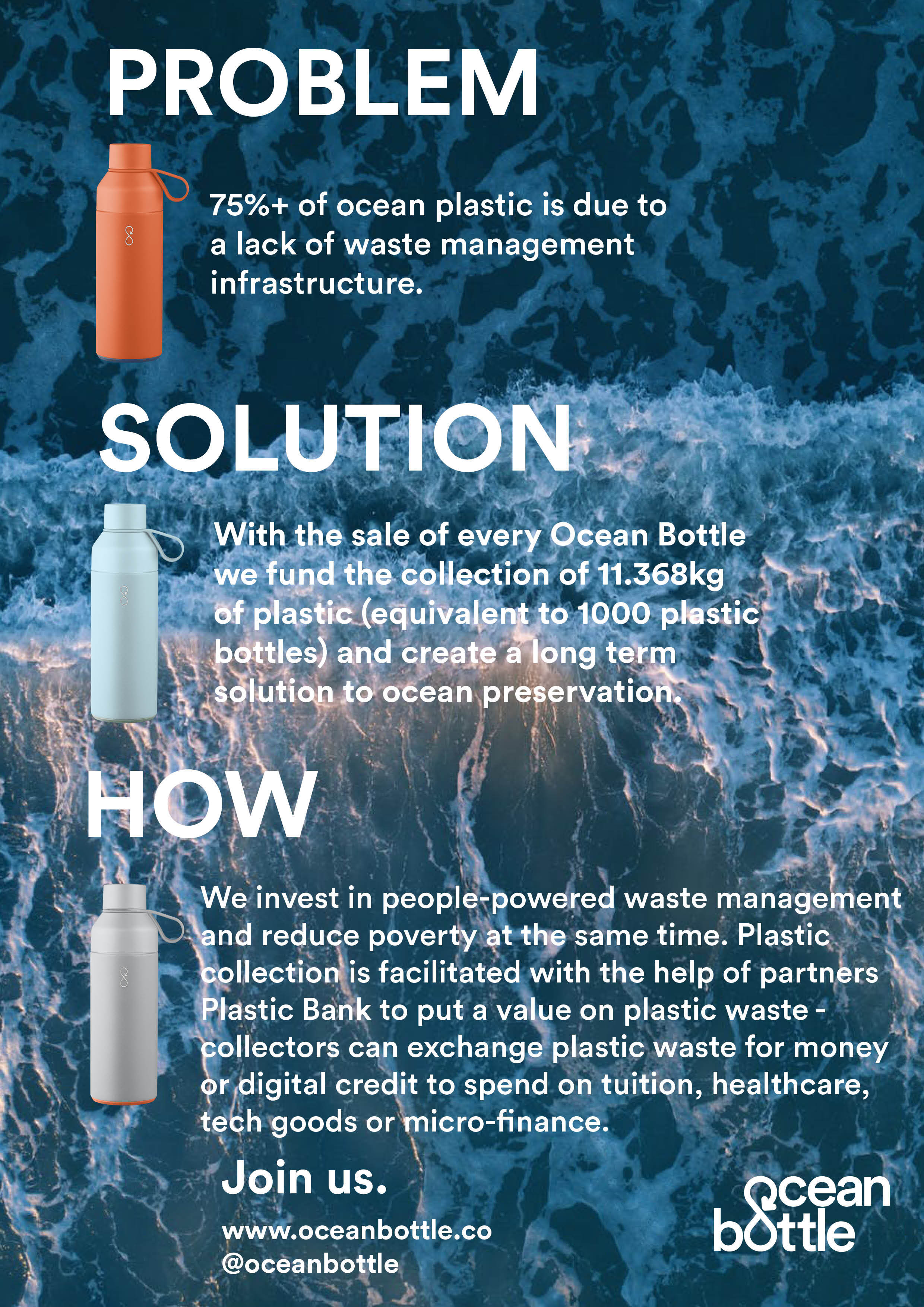
Plastic to Fuel/ Energy Conversion
Single-use plastic can also be converted to feedstock for fuel or energy products as shown by these solutions:
Urban & Ocean Plastics Carbon Recycling by Enerkem is a cleantech solution converting urban and ocean plastics into low carbon transportation fuels. This solution has been implemented in Canada to convert 200,000 tonnes of non-recyclable waste into methanol and ethanol, avoiding the equivalent CO2 emissions of 50,000 cars annually.
The Mobile Pyrolysis Technology by Plastics Pirate turns plastics into usable fuels or upcycle them into useful items like buckets, water tanks or building materials. The technology was adopted by a banana grower in Australia to produce fuel for their farm out of plastic waste from the agricultural industry.
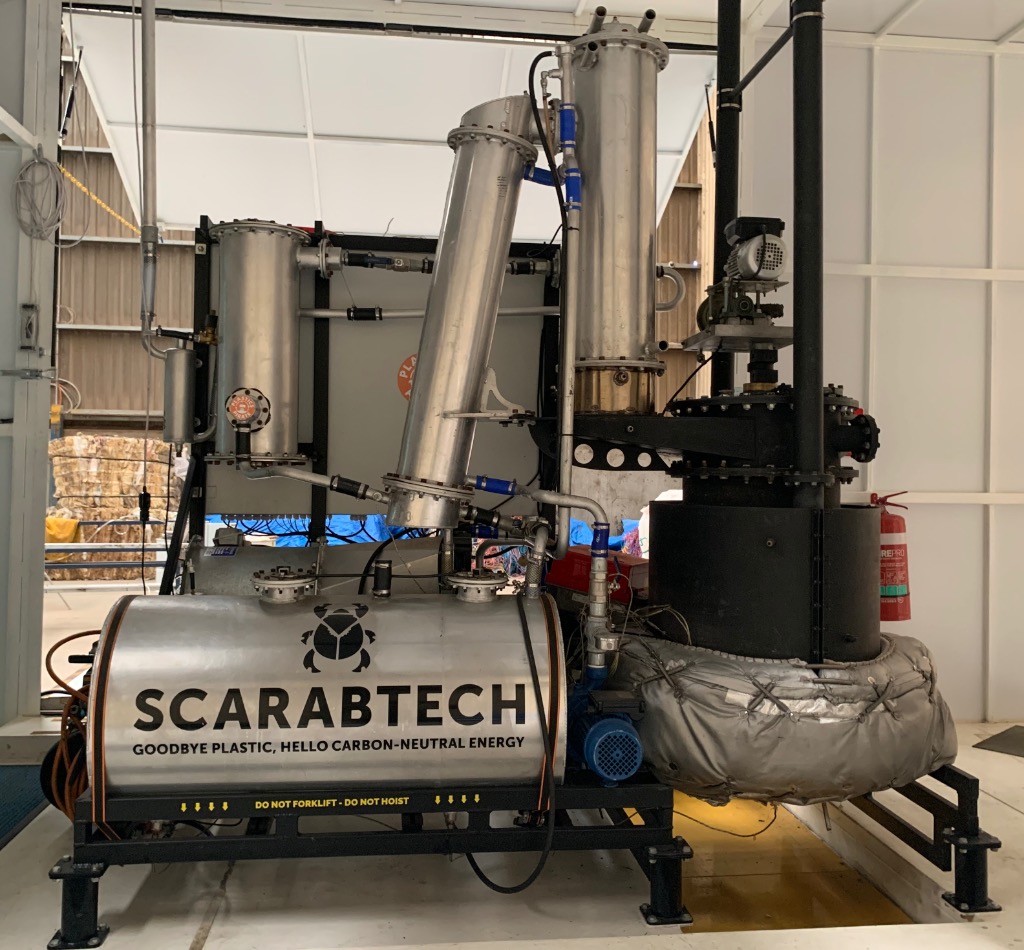 Plastic Pirate's technology to develop fuel from plastic waste.
Plastic Pirate's technology to develop fuel from plastic waste.
Bioplastic & Plastic Alternatives
These solutions can provide a sustainable replacement to plastic in our daily life:
Biopac Seaweed-Based Biopacking by PT Seaweedtama Biopac Indonesia has developed a single-use but ecofriendly packaging alternative to plastic out of seaweed. This bio-packing has been implemented by coffee producers in Indonesia to reduce their environmental impact.
Biotrem’s Branbox is a disposable, single-use product from agri-food waste. Using the chemical composition and physical properties of organic raw materials, waste or by-products such as wheat bran, corn bran or algae, this solution produces plates, bowls or cups without plasticisers or other chemical compounds, reducing plastic waste and CO2 emissions by approximately 80%.
Pond Bio Resin System is a brand-new generation of bio-resin. It uses residues from local agriculture, forestry, food procession or industrial bio-waste to offer a biodegradable alternative to problematic, old-school plastics.
Evanesto by Carbiolice is an additive that speeds-up the biodegradation of PLA-based plastics by accelerating its depolymerisation and therefore rendering plastics that are too thin, soiled of made from multi-materials compostable.
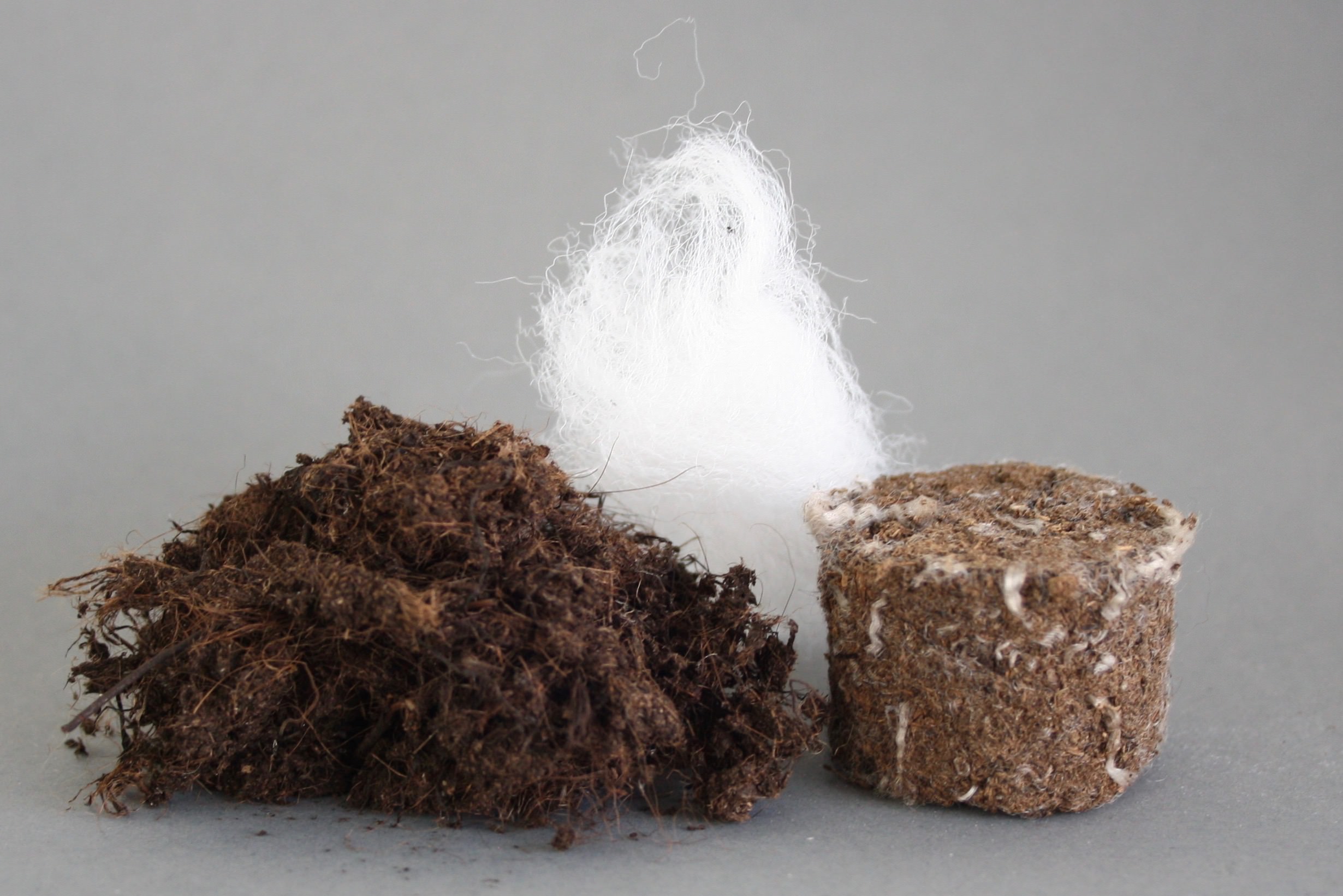 Natural materials used by Pond Biomaterials to develop their bio-resin.
Natural materials used by Pond Biomaterials to develop their bio-resin.
Support Systems/ Enablers
In this section, we have regrouped platforms, apps or services that promote broader plastic circularity:
ReCircle has developed a service aiming to replace single-use packaging with reusable, affordable and ecological packages. These 100% recyclable products are returnable and exchangeable in all restaurant partners which can be found on the reCircle App. In Lausanne, 62,000 reCircle boxes in circulation around 140 restaurants avoided 1.56 million single-use packaging items per year, reducing the amount of waste by 46 tons.
Goodbag is a smart reusable shopping bag that rewards people for re-using their bag and enables them to see what they create in real-time. Users of the Goodbag app can plant trees, clean plastic waste out of the ocean or receive a discount as a reward every time they re-use their bag in a store. An NFC chip is integrated into the goodbag logo and connects with the users phone through the goodbag app. The members can then track their positive impact in real-time and interact with the world’s leading retailers and brands.
The Cirplus platform connects waste owners, recyclers, converters and distributors to create a circular market within the plastic industry. Cirplus sets standards for recyclates and plastic waste, and traces the materials globally, with the aim of reducing transaction costs for recycled plastic and create an incentive for the value chain to switch from virgin to recycled.
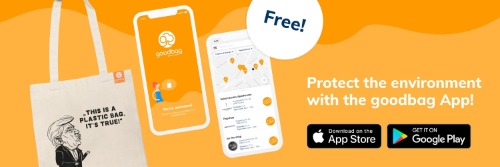
Motivational News
Very recently, scientists in Japan have discovered a biodegradable and recyclable plastic that fully dissolves in water within hours. It may drastically reduce microplastic diffusion in our oceans!
This breakthrough, and the Solar Impulse labelled solutions brought forward in this article, illustrate our capacity to find answers to our mistakes. We possess the required tools to counter the threats of plastic pollution, let’s use them!

Written by Léon Pieyre on July 2, 2025



